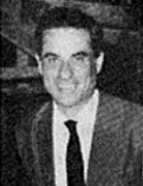

All of this, duly analysed, will result in a well-supported reflection on thought (and mentalities) in the Portuguese Renaissance, verified in its philosophical projection based on experience and the scrutiny of nature. For JBC , Esmeraldo is a work of synthesis ( As fontes … [The sources] , p. 153). It seeks to characterise and integrate the Portuguese Renaissance, the specificity of which it seeks to understand. Because the central ‘essential fact’ is, and must be, the great discoveries. Because it is necessary to analyse ‘the Portuguese travel literature of the 15 th and 16 th centuries, and the scientific and technical literature associated with it’ ( O Renascimento … [The renaissance] , 1980, pp. 13 and 17). Because it is in the underlying philosophy that cultural and mental innovation is revealed, not in the texts of the so-called humanist philosophers, always attached to the lessons of the masters of Antiquity. Now, learning did not come from this mindset but from what was observed, seen and experienced.
Having finally returned to Portugal after an absence of a quarter of a century and almost fifteen years of exile, JBC, the historian and the citizen, was preparing to publish a set of four or five small volumes that would bear the general title Para Uma Explicaç ão de Portugal [For an explanation of Portugal] . As a historian, he had begun by showing the difference between chroniclers and historians who cultivated history-science, and the first to stop writing chronicles was Alexandre Herculano, whom he greatly admired. In this work , he made an epistemological break (an Althusserian concept he adopted) in order to embark on the scientific method. The first Portuguese historian – or in Portugal. Because the European Enlightenment had already had Voltaire and Condorcet as critics and precursors in the 18 th century, and then History was definitively affirmed in the 19 th century with Michelet. There are other examples, such as Thierry and Guizot, who already saw History not as the work of great men but of society as a whole. This would later be established scientifically with the historical materialism of Karl Marx and Friedrich Engels ( Da História-Crónica à História-Ciência [From History-Chronicle to History-Science] , 1972).
This work is financed by national funds through FCT - Foundation for Science and Technology, I.P, in the scope of the projects UIDB/04311/2020 and UIDP/04311/2020.
